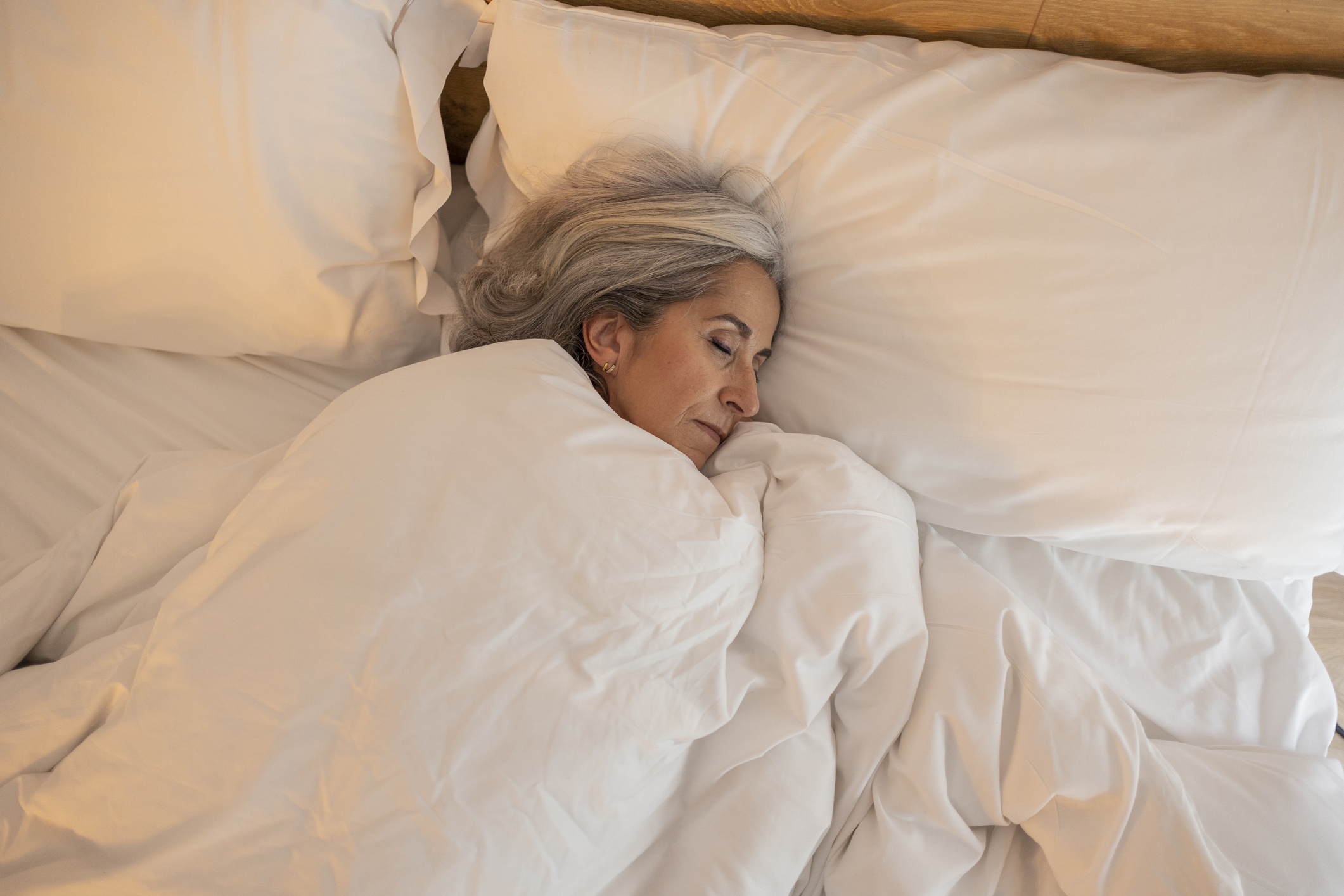Sleep patterns often change as we age. Seniors often find themselves sleeping less than they did in their younger years. But why does this happen?
In this blog post, we will explore the common sleep patterns of seniors, explain why these changes occur, and provide strategies for improving sleep quality as you age.
Contents
What Are the Most Common Reasons Why Seniors Have Trouble Sleeping?
Seniors can experience various issues that interfere with their sleep. Some of the most common causes include:
Hormonal Changes
One of the most common causes of sleep disturbances in seniors is the natural hormone decrease, such as melatonin and testosterone. These hormones can influence your sleep patterns by making it harder to fall asleep and stay asleep throughout the night.
Medical Conditions
Many medical conditions can interfere with a senior’s ability to get good-quality sleep. From joint pain to heartburn, certain medical conditions can make getting comfortable enough to sleep difficult.
Medication Side Effects
Many seniors take medication that can produce side effects, such as insomnia or disrupted REM cycles, which can interfere with the quality and quantity of their sleep.
Environmental Factors
Seniors are often more sensitive to environmental factors like noise, light, and temperature than younger individuals. These factors can make falling asleep and staying asleep throughout the night difficult.
What Strategies Can Seniors Use to Improve Sleep Quality?
Seniors can take several steps to improve their sleep quality, such as:
Limiting Caffeine Intake
Limiting caffeine intake is one of the best ways to improve sleep quality. It includes avoiding caffeinated beverages late in the day and opting for decaffeinated options instead.
Exercising Regularly
Regular physical activity can help seniors feel more energized during the day and tire themselves out enough to fall asleep more easily at night. Even low-impact activities like walking or yoga can be beneficial.
Creating a Routine
Going to bed and waking up at the same time each day can help seniors create a consistent sleep schedule, making it easier for them to fall asleep at night. Additionally, avoiding screens an hour before bed can help you wind down and get better rest.
How Much Sleep Should Seniors Aim for?

Most seniors should aim for 7 to 8 hours of sleep per night. However, the exact amount may vary based on individual needs and preferences. The benefits of getting enough sleep include the following:
Improved Mood
One of the most immediate benefits of getting enough sleep is improved mood. Studies have shown that seniors who get enough sleep are less likely to experience depression or irritability.
Enhanced Memory
Good quality sleep can also help improve memory and focus, which are important cognitive functions for seniors to maintain.
Healthier Immune System
Adequate rest helps the body repair itself and fight off illnesses more effectively. This is because the immune system is strengthened during sleep, making it easier to ward off infections and illnesses.
What Are the Risks of Poor Sleep Quality for Seniors?
Poor sleep quality can have serious health risks for seniors, including:
Increased Risk of Accidents
Sleep deprivation increases the risk of accidents, such as falls or car accidents. This is because lack of sleep impairs physical and cognitive functions, making it harder to make decisions or react quickly in dangerous situations.
Weakened Immune System
Chronic sleep deprivation can weaken the immune system, making seniors more prone to illnesses and infections. Therefore, it’s important to ensure you get enough restful sleep each night.
Higher Risk of Heart Disease
Studies have shown that poor sleep quality can increase seniors’ heart disease risk. This is because lack of sleep increases inflammation and stress hormones, which can lead to an increased risk of stroke or heart attack.
Adverse Effects on Mental Health
Poor sleep quality has also been linked to an increased risk of mental health issues, such as anxiety and depression. Because of this, seniors need to get enough quality rest.
Conclusion
Sleep patterns often change as we age, but seniors need to take steps to improve their sleep quality. Fortunately, various strategies can help seniors get the restful, restorative sleep they need, such as limiting caffeine intake, exercising regularly, and creating a consistent routine. Doing so can help reduce the risks associated with poor sleep quality and improve overall health.

